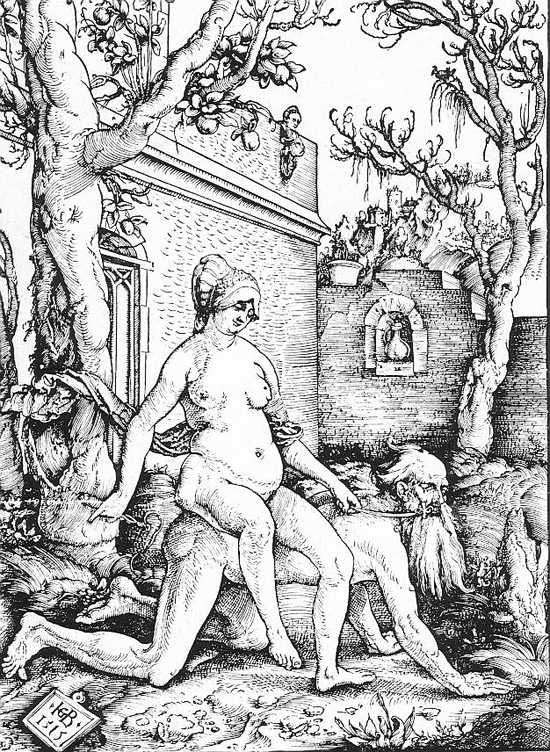
Engraving “Aristotle and Phyllis.” In the Middle Ages in Europe was a popular legend about the great ancient Greek philosopher Aristotle, who was the teacher and mentor of Alexander the Great. Seeing how his young pupil is excessively carried away by the beautiful courtesan Phyllis, Aristotle warned that strong passions can be disastrous for men.
Angry Phyllis decided to take revenge on the aged philosopher. She appeared before him in all its glory, fascinating him to such an extent that the great and revered philosopher became passionate and ready for anything. The courtesan was not inferior and, as a proof of love, invited the philosopher to portray the horse, and she herself would be a rider. Obliviated by the passions, the philosopher became on all fours, he was saddled by the Phyllis and, swinging his whip over his head, swung his horse.
This scene, according to legend, was observed by Alexander the Great. It is difficult to say whether this was in fact, in ancient sources this is not mentioned. Perhaps the reason for the appearance of the legend was the words of the great philosopher Aristotle: “If love is so strong that even I, with all my wisdom and considering how old I am, could not withstand it, so you must be on the alert from the crowd of young people.”
The plot was very popular in European painting of that period. Many artists depicted a wise philosopher, who was overcome by love passions. Artists most often performed orders of wealthy citizens, aristocrats, catering to their tastes and needs.
Hans Baldung Greene in engraving Aristotle and Phyllis scour flaw and passion, he is simply ruthless towards the great ancient philosopher, who is depicted as a ridiculous and voluptuous old man. Phyllis in this engraving is not at all a beauty, but a frivolous courtesan with plump forms and a mocking self-satisfied smile.
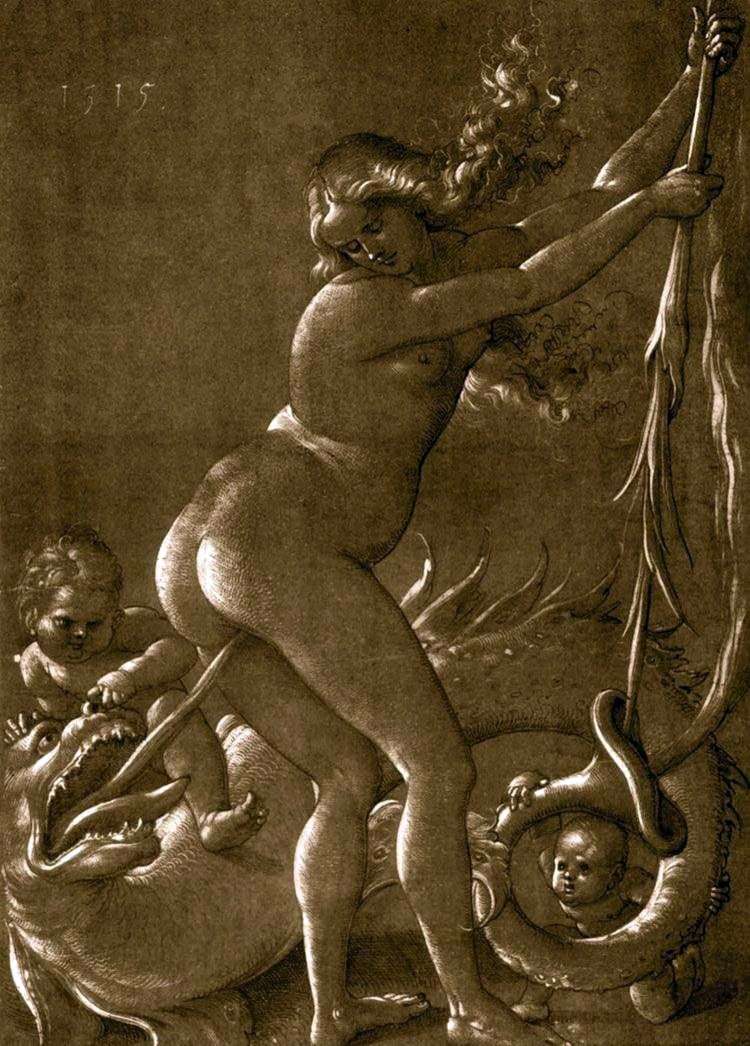 Witch and Serpent (engraving) by Hans Baldung
Witch and Serpent (engraving) by Hans Baldung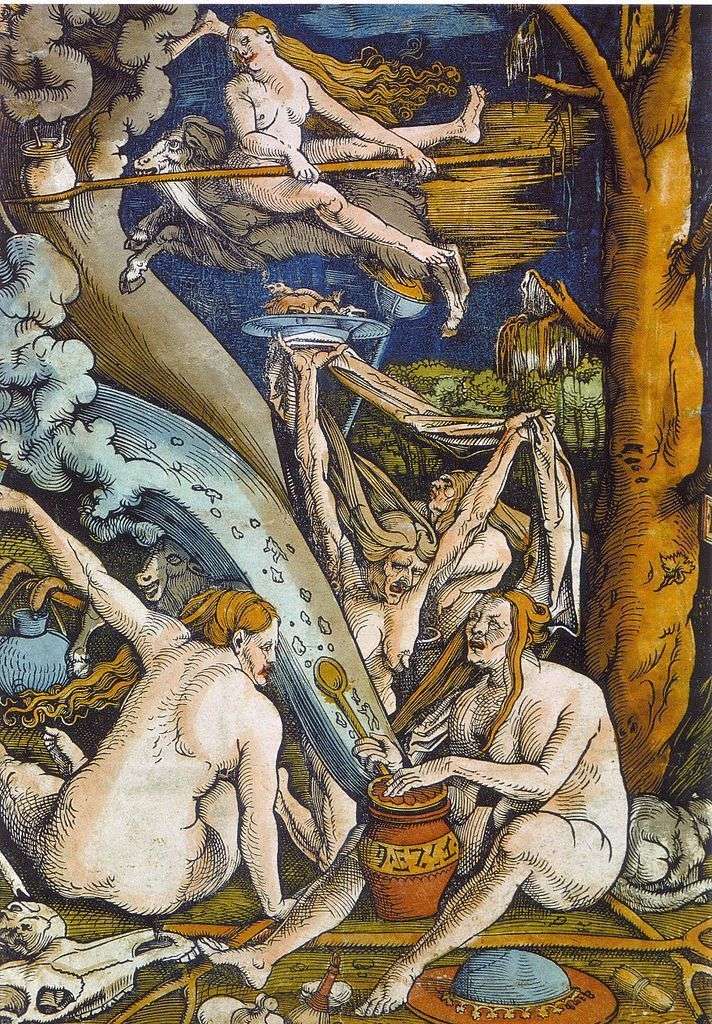 The Sabbat of the Witches by Hans Baldung
The Sabbat of the Witches by Hans Baldung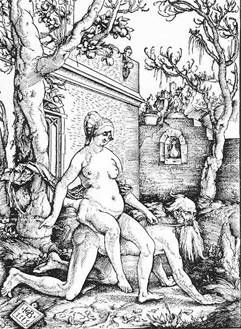 Aristote et Phyllis – Hans Baldung
Aristote et Phyllis – Hans Baldung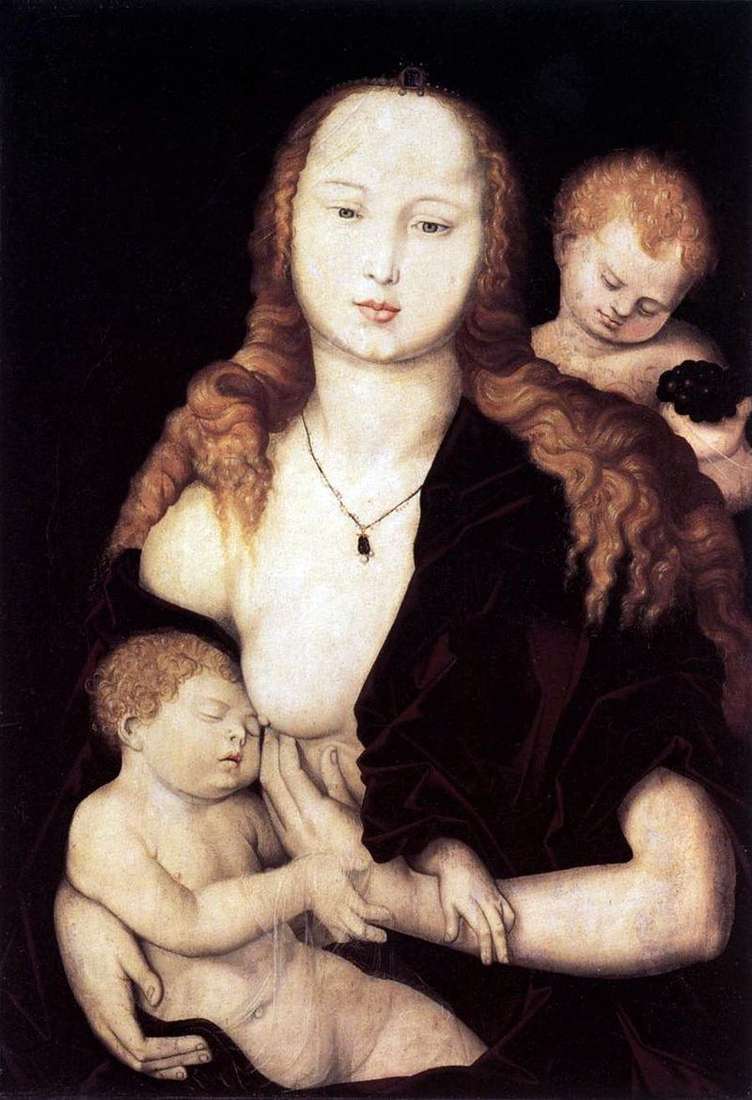 The Virgin and Child by Hans Baldung
The Virgin and Child by Hans Baldung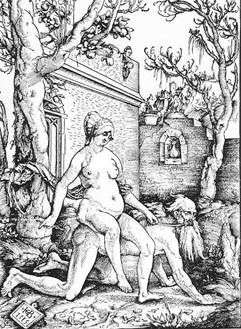 Aristóteles y Phyllis – Hans Baldung
Aristóteles y Phyllis – Hans Baldung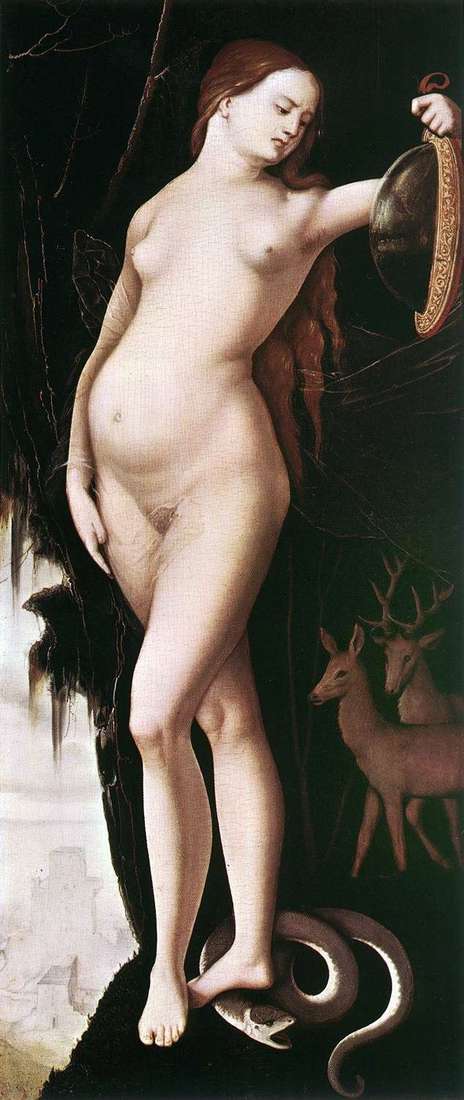 Prudence by Hans Baldung
Prudence by Hans Baldung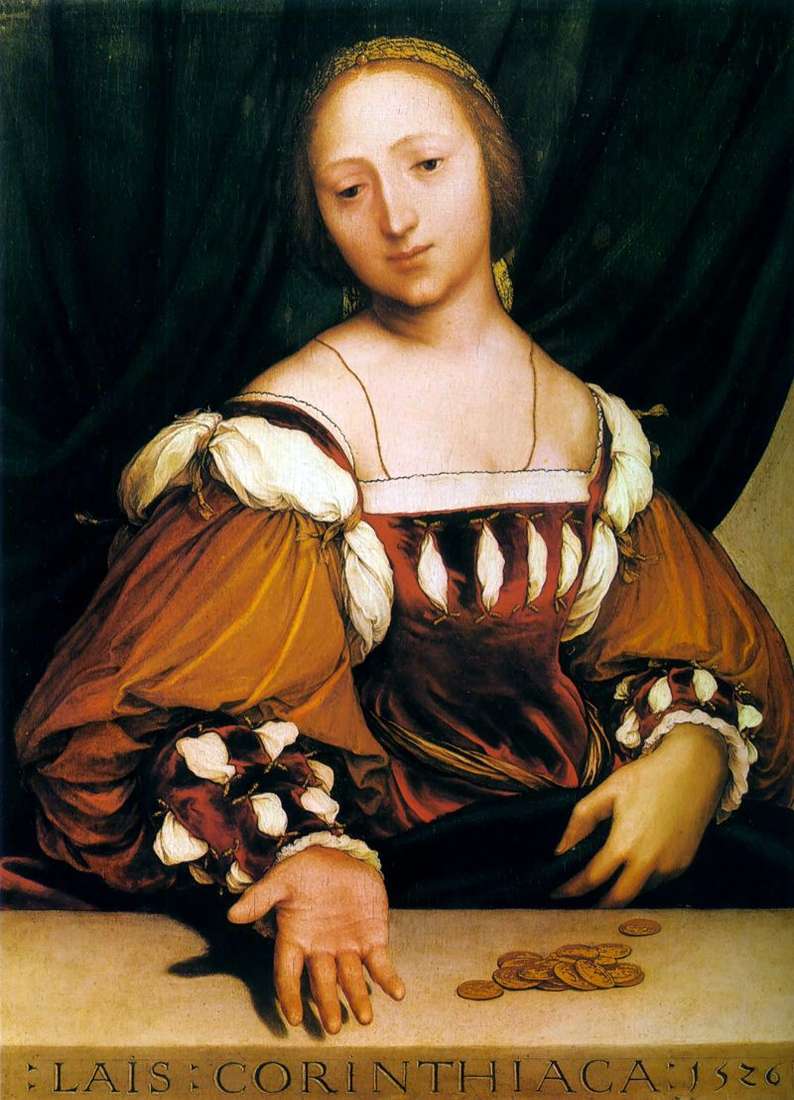 Lais from Corinth by Hans Holbein
Lais from Corinth by Hans Holbein Rest on the way to Egypt by Hans Baldung
Rest on the way to Egypt by Hans Baldung